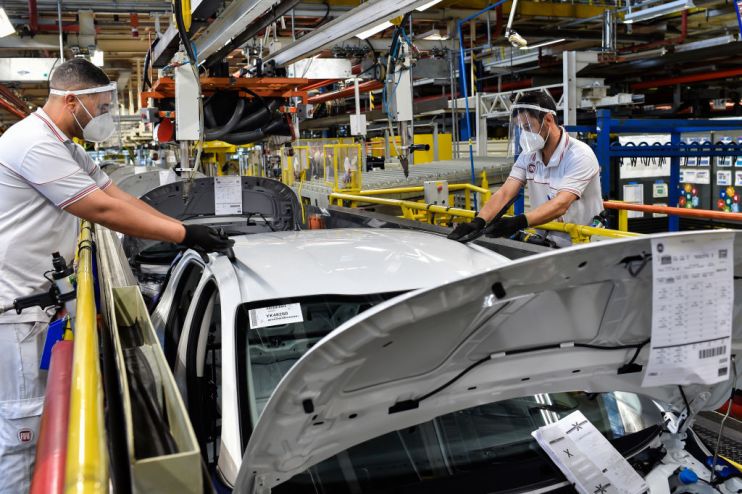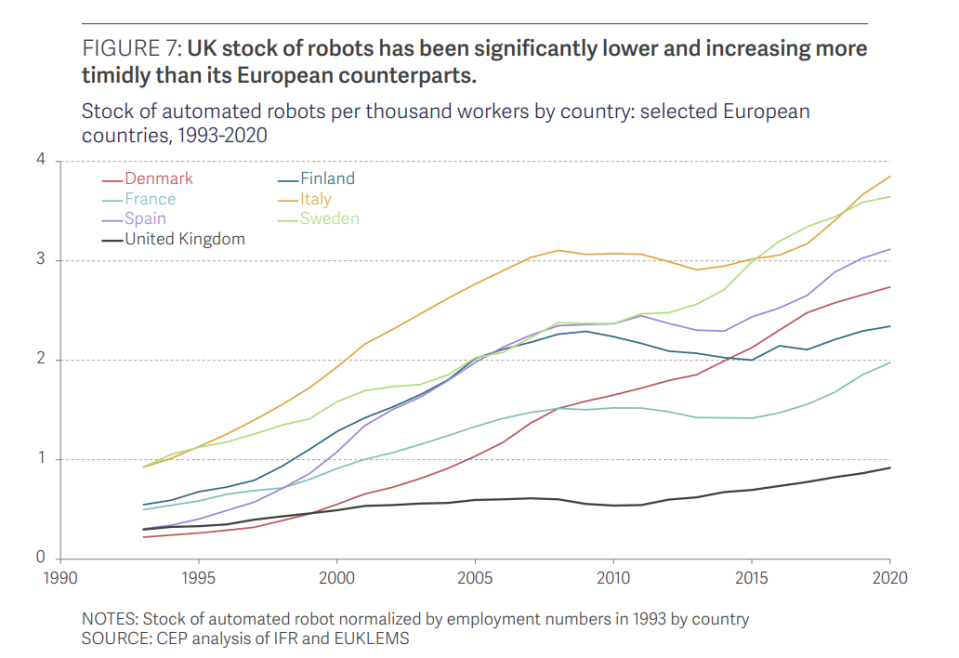Y2Pay: Robots eat into wage growth in the UK but boost productivity

Fears of robots taking people’s jobs have been “overblown”, with low investment and productivity growth being the real culprits behind the UK’s stagnant economy, according to a new report by the Resolution Foundation today.
However, automation has dampened the average take-home for staff operating alongside new tech, the report, in collaboration with the London School of Economics, found.
Fast developments in artificial intelligence (AI) technologies have sparked concern among the working population over the past decade that they will soon be side-lined for robotics.
While automation has eaten into wage growth in the UK, the number of jobs actually increased in some sectors and productivity jumped where robotics were introduced to fulfil some tasks.
Between 1995 and 2019, an industry with one robot per thousand workers saw three per cent faster productivity growth on average, the report found.
Wage growth
“Lower paid workers compete with robots, middle earners face competition from software, while higher earners are likely to see artificial intelligence doing some of their tasks,” the report said.
Jobs highly exposed to robots tend to be lower paid and involve routine tasks, the report added, which makes it harder to move into new sectors if their jobs are displaced.
Senior economist at the Foundation, Nye Cominetti, said: “The last decade saw economic policy debates dominated by worries about the impact of robots and machinery on people’s pay and jobs. But these fears are overblown, as were many of the predictions they were driven by.
“Britain’s actual economic problem is low productivity feeding into weak wage growth. Adoption of existing and new technology is more likely to be the solution to this problem, rather than the cause of it.”
The report also noted a ‘productivity’ effect, where automation cuts the cost of the goods and an increase in demand for the more affordable products increases demand for non-automated workers.
But the UK currently lags behind Europe in its adoption of robotics.

Rui Costa, research economist at LSE, added: “Over longer time periods jobs that are most exposed to being replaced by robots have seen lower employment and wage growth than less exposed jobs, which is a concern when these workers tend to have lower qualifications and fewer transferable skills
“Incorporating new technologies in the UK economy can bring about significant productivity gains, but ensuring that the benefits of these gains are more fairly distributed will be critical.”
A separate study by tech research giant Gartner yesterday found that IT spend across Europe, as well as the Middle East and Africa, is set to grow next year despite the global economic downturn.
Spend is set to rise nearly four per cent to $1.3 trillion in 2023, with the UK expected to book the largest growth in capital expenditure.
The UK’s spending on IT is expected to increase 5.2 per cent next year, in comparison with 2022.